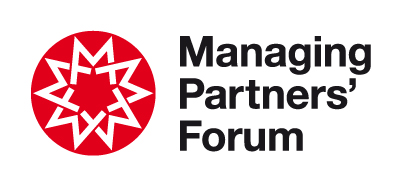The first session in MTT’s leadership series, hosted by Addleshaw Goddard, covered Authentic Leadership. It was led by Gareth Jones, visiting professor at the IE Business School in Madrid and fellow of the Centre for Management Development at London Business School. Jones drew on his practical experience as senior vice president for Polygram’s human resources and director of human resources and internal communications at the BBC and explored themes from the books he co-authored with Rob Goffee, “Why Should Anyone Be Led By You?: What It Takes To Be An Authentic Leader” and “Clever: Leading Your Smartest, Most Creative People”.
Jones is a sociologist with a particular interest in knowledge-intensive businesses. Professional services organisations have a tough leadership challenge: they full of clever people who don’t want to be leaders and don’t want to be led, he explains. But when they are well led, they are much more effective.
Why does leadership matter?
Leadership matters because it affects performance.
What does it take to be a leader? As 20th century history shows us, effective leaders are not always nice!
To be an effective leader, start by asking:
• Why should anyone be led by you?
• Are you/is your organisation good at generating a pipeline of leaders?
Leading is not the same as managing, especially in hierarchical, partnership organisations. Leadership is a profoundly non-hierarchical concept, which is why great organisations build leadership in different ways.
Not everyone can be a leader. If you don’t want to be a leader, you don’t have a chance, asserts Jones, adding that every effective leader who is described as a ‘natural leader’ wants to lead and puts in the effort to do it well. Why? Because effective leadership excites people to exceptional performance. And exceptional performance underpins competitive advantage.
In today’s extraordinarily volatile times, exceptional performance is not a luxury – it is a survival technique. The rest of the presentation covered themes and findings from Jones’ and Goffee’s book, illustrated by engaging anecdotes from Jones’ experience at PwC and the BBC.
Organisations and communities
Organisational leadership needs to be effective at three levels: individual, team and organisation. In professional services, which rely on individual expertise adding significant value, it is important to identify the people who matter. An important part of retaining key players is ensuring they are well led. In professional services, competitive advantage is not about recruitment as all the big players in professional services recruit excellent individuals and pay them well, so team leadership is the biggest source of sustainable competitive advantage and provides the biggest return. At an organisational level, partners and senior leaders are the face of the organisation, and Jones’ experience at the BBC showed him that they are never off duty. Leadership is a role, not a job. It doesn’t stop when you’re not at work.
There is a lot of talk about authentic leadership, but how do you maintain authenticity at a time when trust is at an all-time low and each week uncovers a new political, financial or corporate scandal? Jones referenced the impact of the Volkswagen emissions scandal on consumer trust. Loss of trust in institutions and organisations is exacerbated by the decline of communities – there is an argument that this is driven by technology, which is replacing physical communities with online communities. Jones believes that humans were designed for social interaction, and authentic leadership means connecting (with) people.
Businesses have the opportunity to build communities, because people want to deal with – and work for – organisations they can trust. Millennials are particularly focused on authenticity and bring to the workplace:
• High expectations of self and others
• Creative challenges and responsibilities
• Questioning traditional authority
• High mobility
• Focus on work-life balance
Having said that, Jones is sceptical about advice on how to lead millennials, highlighting research showing greater variation within generations than between generations. He identifies leadership challenges associated with ‘clevers’ that transcend sectors and generations:
• Cleverness is central to their identity (and careers)
• Their skills are not easily replicated
• They know their worth (and resist feedback)
• They ask difficult questions
• They are organisationally savvy
• They are not impressed by hierarchy
• They expect instant access
• They are well connected
• They have a low boredom threshold
• If you lead them well, they won’t thank you – and part of leading clever people effectively is to avoid excessive leadership and allow the people who make the organisation distinctive concentrate on what they do best – i.e. the programme makers at the BBC.
Leadership is in short supply. In most organisations, there are plenty of effective managers, but not enough leaders. Organisations recognise the leadership deficit, but they kill it with conformity measures – like leadership competence models! Professional services often develop what is almost a blueprint of what a partner should look like – and that inhibits progress towards authentic leadership.
Leadership traits
When he was head of HR at the BBC, Jones recalled The Times publishing a list of influential business leaders. He was pleased to see himself at number 33 until he saw Dilbert at number 16! He believes that most leadership research is asking the wrong questions – there are too many books on how to emulate Jack Welch or Richard Branson.
While copying effective leaders may not be authentic, research has shown that they have particular traits, qualities and skills in common.
• Capacity to develop strategy
• Able to work with a variety of people
• Early responsibility for important tasks
• Strong achievement goals
• Early leadership experience
• Experience of several business functions
• Integrity trust, concern for people
This shows that leadership is a combination of education (and upbringing, as eldest siblings are encouraged to develop leadership qualities) and motivation. Professional services leaders are challenged to develop the ability to work with a variety of people – because people who attend elite universities and business schools get used to working only with other clever people! Furthermore, professional services organisations make people wait too long for leadership roles as they require deep expertise rather than broad experience. The military is an example of effective leadership, in terms of diversity, early responsibility, and trust.
Are you an authentic leader?
Authenticity is an ascribed characteristic.
Instead of looking for effective leaders to emulate, it is worth considering how people want to be led. What do followers want from their leaders?
• Community: people want team spirit and a source of affiliation. Look at football teams and supporters! Leaders need to be community builders
• Significance: people want to be appreciated, especially if they go the extra mile.
• Motivation: people want purpose and inspiration
• Authenticity: mutual trust and respect.
To find out whether you’re an authentic leader, you need to ask yourself: Do you take your real self to work? We spend the bulk of our waking life working, so it has to be a place/role where you can be yourself.
Ask your team! 360 feedback can be painful, but it closes the loop between the way we think we’re behaving and the way we are perceived.
Authentic leadership is about relationships
Leadership is a series of relationships predicated on social interactions – it’s not just about psychology.
• It is contextual – it’s different in a law firm than a steel mill (relationship with organisation)
• It is relational, it takes a village – Jones uses surgical teams as an example (relationship with colleagues)
• It is not hierarchical – it’s not predicated on seniority. The Army has to consider the possibility of officers being killed in combat, and the need for instant alternative leadership. This means training everyone to lead. (relationship with scenarios)
Authentic leaders stay in touch with themselves and their followers:
• They stay in character because they are comfortable with their origins and role
• They sense situations and respond to context and scenarios (Jones uses football teams as an example)
• They take symbolic (memorable) actions – Jones used the example of Nelson Mandela wearing a Springbok shirt to congratulate the South African rugby team
How to be an authentic leader – in five words
In summary, Jones offers five words of advice. If you want to be an authentic (and more effective) leader,
Be yourself
More
With skill
Effective leadership is an authentic role performance with the capacity to transform organisations and enrich lives. It is difficult. But the results, for yourself as a leader, for your team, and for the business make it worth putting in the effort.
Joanna Goodman

